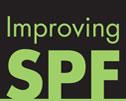The 112th Congress convened Jan. 5, giving Republicans a majority in the House while Democrats maintain control of the Senate. After picking up 62 House seats in the midterm elections, Republicans have more House seats now than at any time during their 12-year majority from 1995 through 2006. As a result, they should be able to move their legislative agenda through the House.
Republicans also now control all House committees, enabling them to exercise oversight over executive agencies. This may make it more difficult for the Obama administration to move forward with new regulations during the next two years.
Although Democrats still control the Senate, their majority was narrowed. Republican influence in the Senate may be further enhanced if Democrats up for re-election in 2012 vote with Republicans on key issues.
With control of Congress split evenly between the two major parties, substantial bipartisan cooperation will be needed to pass legislation. It certainly is possible—many analysts believe likely—that legislative gridlock will be the primary outcome of the 2010 elections, putting off actions on some issues until 2013 at the earliest.
In this new political environment, NRCA will continue to work on several issues of importance to roofing contractors but in a somewhat different manner.
Important issues
During the past two years, NRCA opposed the Employee Free Choice Act, which sought to fundamentally change union organizing rules by limiting the use of secret ballot elections in favor of "card check" procedures. NRCA, working with the Coalition for a Democratic Workplace, was successful in preventing the act from passing the Senate during the 111th Congress.
With Republicans now in control of the House, the card check bill is off the table for the foreseeable future. However, NRCA expects the Obama administration to pursue expansion of card check procedures in union organizing through the National Labor Relations Board (NLRB). NRCA will continue to be active in efforts to preserve secret ballot elections for workers.
Another major issue for NRCA is the future of the health care law enacted by Congress in 2010, which NRCA strongly opposes. Republicans campaigned on a pledge to repeal the law, and the Republican-held House may pass a bill to do so. However, any repeal effort certainly will die in the Senate or on the president's desk.
With repeal not a viable option, House Republicans will hold hearings to draw public attention to the law's most problematic components, attempt to pass legislation to repeal specific components of the health care law or try to withhold funding needed to implement the law. However, with President Obama in office for the next two years, major changes to the health care law likely will depend more on the outcome of the 2012 elections.
In 2009, the House passed a massive "cap-and-trade" bill designed to address climate change; the legislation was supported by the president but died in the Senate. NRCA opposed this bill because of concerns that a cap-and-trade system would have serious adverse effects on the construction industry. It is clear from the election results that the cap-and-trade approach to addressing climate change is dead at least for the next two years.
The question now is whether lawmakers can work on bipartisan legislation that addresses our energy needs and takes modest steps toward reducing carbon emissions. During 2010, Democrats and Republicans discussed moving forward with an energy bill that could garner broad bipartisan support, and some sources believe such a bill could pass in 2011.
Looking ahead
The new political environment presents challenges and opportunities for NRCA's government relations efforts. NRCA will work closely with lawmakers on issues of importance to the roofing industry.
Duane L. Musser is NRCA's vice president of government affairs.



